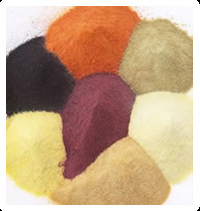Schisandra Purchase & Information

Alternative Names
Bac Ngu Vi Tu, Baie de Schisandra, Bei Wu Wei Zi, Beiwuweizi, Chinese Mongolavine, Chinese Schizandra, Chinesischer Limonenbaum, Chosen-Gomischi, Five-Flavor-Fruit, Fructus Schisandrae, Fructus Schisandrae Chinensis, Fruit aux Cinq Saveurs, Gomishi, Hoku-Gomishi, Kita-Gomishi, Limonnik Kitajskij, M Mei Gee, Magnolia Vine, Matsbouza, Nanwuweizi, Ngu Mei Gee, Northern Schisandra, Omicha, Schisandrae, Schisandra Sinensis, Schizandra, Schizandra Chinensis, Schizandre Fructus, Schzandra, Southern Schisandra, Wuhzi, Wu Wei Zi, Western Shisandra, Xiwuweizi
Scientific Name
Schisandra chinensis
Why Do People Use Schisandra?
Oral preparations of Schisandra chinensis (Schisandra), like schisandra powder, are often used orally as adaptogens for enhancing the protection from disease and stress, increasing endurance and physical performance and increasing energy. Schisandra powder is also used orally for boosting muscular activity, improving vision, for hepatitis, improving cellular energy, preventing premature aging, liver protection, for premenstrual syndrome (PMS), increasing lifespan, speeding recovery after surgery, stimulating the immune system, against radiation, protecting against radiation, the effects of sugar, counteracting the effects of sugar, normalizing blood sugar and blood pressure, preventing motion sickness, preventing infection, reducing high cholesterol, adrenal health, improving adrenal health and energizing RNA-DNA to rebuild cells. Schisandra is also used for treating asthma, coughs, neurasthenia, insomnia, dysentery, chronic diarrhea, spontaneous sweating, night sweats, thirst, involuntary seminal discharge, physical exhaustion, impotence, depression, excessive urination, for treating memory loss and irritability.
Schisandra fruit is normally eaten as a food.
Is It Safe To Use?
Likely Safe - Oral and appropriate consumption of Schisandra is thought to be safe to use.
Possibly Unsafe Pregnancy - During pregnancy, schisandra’s oral usage should be avoided because there are some data available that use of this fruit may increase uterine contractions.
Avoid In Lactation - Because of scarce and unreliable information, breastfeeding mothers should discontinue or avoid the use of schisandra powder.
How Effective Is Schisandra?
Schisandra powder can be used in following diseases/conditions:
• For Improving coordination, concentration and endurance.
• To treat hepatitis
How Schisandra Works?
The most effective part of Schisandra chinensis is the fruit. Combination of active constituents including schizandrols, schizandrins, schizandrers, gomisins, wuweizisus, schisantherins and numerous others, generally known as lignans, have been found in schisandra. Specific extract of schisandra are standardized based on a specific lignan content, deoxyschizandrin.
Schisandra powder also includes stigmasterol, citral and vitamins C and E.
Schisandra enhances liver function by expanding glucose-6-phosphate, hepatic glutathione and glutathione-reductase activity. It may also have a hepatoprotective impact by inhibiting lipid peroxidation, inducing cytochrome P450 (CYP450) enzymes, increasing liver glycogen production and promoting hepatocyte growth.
Schisandra is an adaptogen. It appears to enhance the concentration level, endurance and coordination. The validity of these impacts is not yet known.
Schisandra powder also appears to have anti-inflammatory and antioxidant properties. Other reported properties of different schisandra lignans include anticonvulsant, antitussive, antifatigue, antidepressant, respiratory stimulant, tranquilizing and platelet activating factor (PAF) inhibition effects.
There are some confirmations that nigranoic acid, which is separated from the stem of Schisandra sphaerandra, may be useful in HIV therapy. In vitro, it exhibits polymerase activity and anti-HIV reverse transcriptase activity as well.
In vitro, extract of schisandra and number of other constituents, for example, gomisin C, seem to inhibit CYP3A4 enzyme. Schisandra seems to affect both CYP2C9 and CYP3A4. Gomisin A and Schisandrin B also repress the P-glycoprotein transporter.
What Are The Side Effects /Adverse Reactions of Schisandra?
Oral consumption of schisandra powder can lead to acid indigestion, heartburn, stomach pain, decreased appetite, urticaria and allergic skin rashes as well in some patients.
How Schisandra Interacts With Other Herbs and Supplements?
Not known.
How Schisandra Interacts With Drugs?
Alanine Aminotransferase (ALT) or Serum Glutamic-Pyruvic Transaminase (SGPT)
Daily intake of Schisandra powder may result in lower serum SGPT/ALT levels and altered test results.
How Schisandra Interacts With Foods?
Not known.
How Schisandra Interacts With Lab Tests?
Alanine Aminotransferase (ALT) or Serum Glutamic-Pyruvic Transaminase (SGPT)
Daily intake of Schisandra powder may result in lower serum SGPT/ALT levels and altered test results.
How Schisandra Interacts With Diseases and Conditions?
Epilepsy - Some reports recommend that Schisandra chinensis should be avoided in patients with epilepsy. But the evidence behind this report was not clear but it may be because of schisandra's possible CNS stimulating effects.
Peptic Ulcer Disease (PUD), Gastroesophageal Reflux Disease (GERD) - Oral consumption of schisandra fruit may fasten PUD or GERD by enhancing the gastric acidity.
High Intracranial Pressure - According to an authentic report, it is proposed that schisandra should be avoided by patients suffering from high intracranial pressure. But the evidence behind this report was not clear but it may because of schisandra's possible CNS stimulating effects.
What Should Be the Dose/Administration of Schisandra?
ORAL To treat hepatitis, extract of schisandra is normally used in a dosage of 20 mg lignan content (equivalent to 1.5 grams of raw schisandra) taken orally on daily basis.
In order to improve the physical and mental performance, 500 mg to 2 grams schisandra’s extract should be taken every day or raw form of schisandra can also be used in an amount of 1.5-6 grams. Raw schisandra decoction (boiled tea) should be used daily in a dosage of 5 to 15 grams. Normally people also use 100 mg of schisandra extract two time every day.
Comments
A specific antihepatotoxic drug known as DBD has been developed in China derived from the schisandra constituent schisandrin C.
General Certificate of Analysis (COA)
Specification sheet links below are a standard copy of the COA less the batch or lot number and manufactures dates. Specification sheet can be dated and should only be considered as a general information. Please contact and request an up to date COA if needed for specific updated information before placing order by filling out the contact form with product name and SKU number. If ordering quantities of twenty five kilos or more contact for availability.
